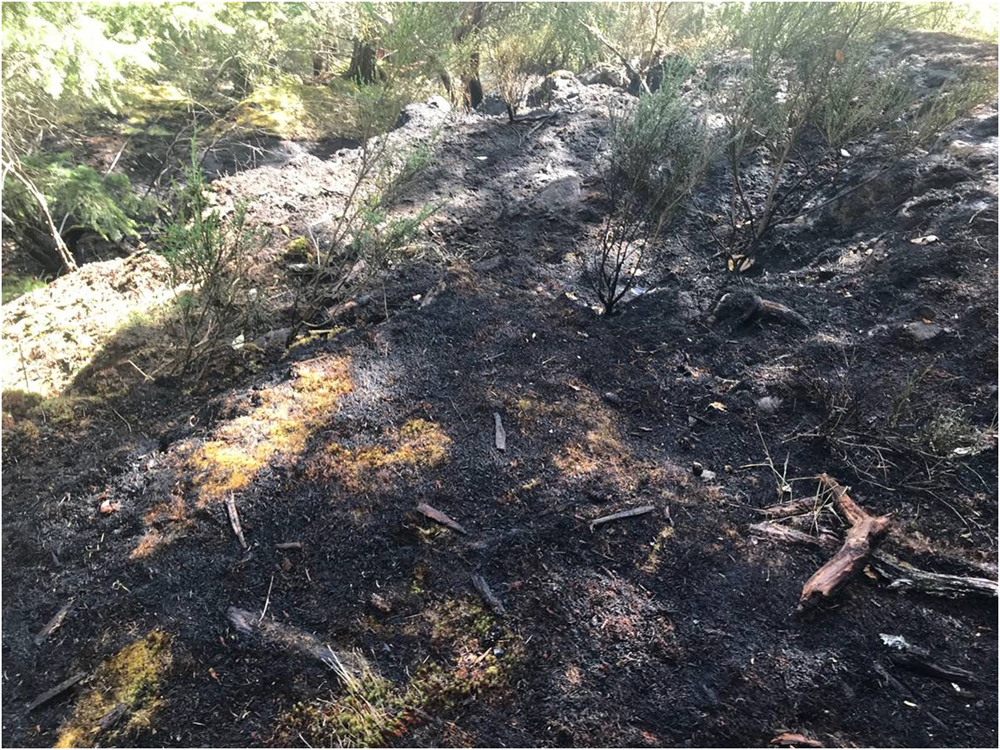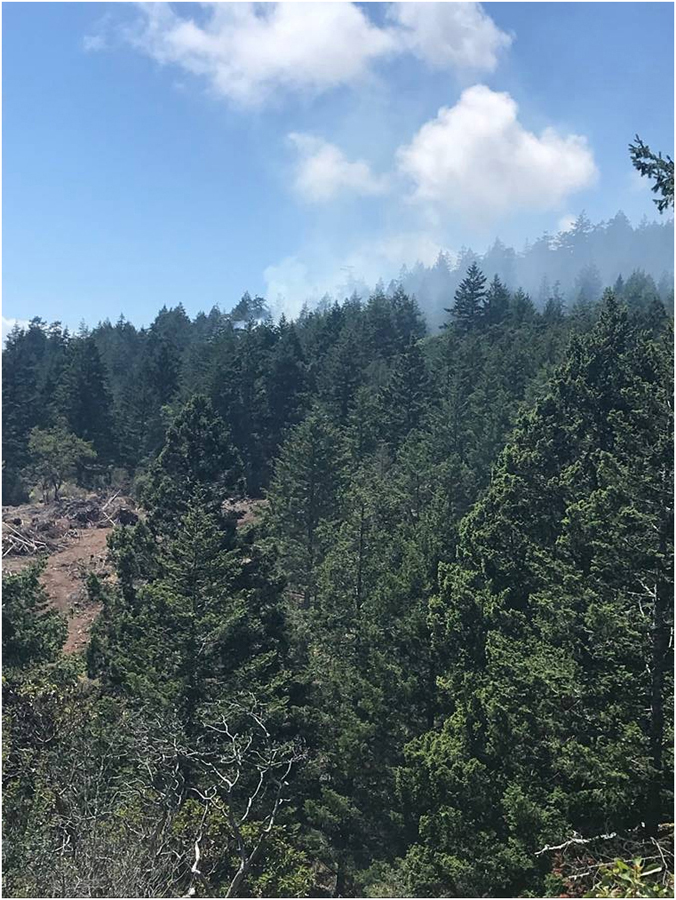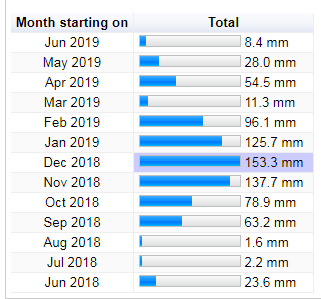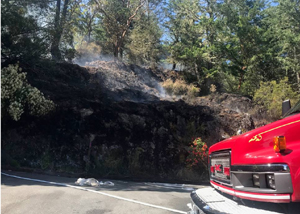Thursday, June 20, 2019 ~ SOOKE
~ Mary Brooke, West Shore Voice News
A sizeable wildfire considering its proximity to a residential area of west Sooke was likely caused by a discarded cigarette butt, says Sooke Fire Chief Kenn Mount.
The 100 x 150 meter (300 x 500 ft) fire in dry brush at the end of Henlyn Drive and Cedar Park Place was called in via 911 around 1:30 pm on Wednesday, June 19. Fire rescue crews moved out fast from Sooke, Otter Point and Metchosin to attend the incident.

This was close to homes. “Access to the fire was through private property and a small shed needed to be protected. The house was not impacted,” said Chief Mount. Wet booms were used to contain the fire, to prevent it from spreading.
“It’s highly probable that it was human caused. Sooke has a poor history with careless use of discarding cigarettes by smokers,” said Mount.
A lot of resources are applied to a fire incident like this. For this fire about 15 fire fighters were on scene (including mutual aid support from Metchosin and Otter Point). There were two brush trucks, two engines, one water tender, a structural protection unit trailer, and four utility trucks.
Crews demobilized from the site around 7 pm, so that was 6.5 hours of attention to fire suppression and the safety of community.
There was no property damage and no injuries amongst the public. But one firefighter required support from the BC Ambulance Service for fatigue and exhaustion.

All of Vancouver Island is on Level 3 Drought, with all persons, businesses, industry and community being asked to conserve water. In the Greater Victoria area the restriction is Level 1 which comes into effect each year as of May 1.
The lack of rain this spring and summer (on top of a drier than usual winter) results in a dry forest floor, where any sort of spark can quickly develop into a fire.

Yesterday’s fire comes after 10 days of zero precipitation in Greater Victoria (June 8 to 18). According to Environment and Climate Change Canada statistics, the last notable rainfall was on June 6 and 7 (6.4 mm over the two days), and yesterday officially saw 1.8 mm rain.
June of last year saw 23.6 mm of rain, then virtually none in July and August 2018. This spring was notably dry, with March — usually a wet rainy month — seeing only 11.3 mm.



